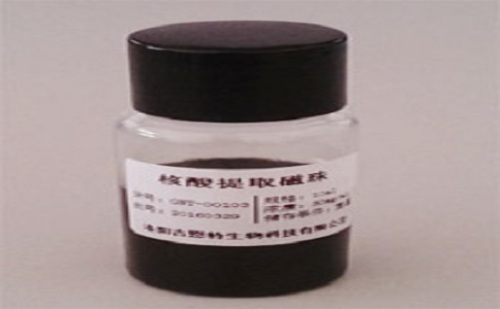Introduction: Biological magnetic beads (or biological microspheres), as an effective new vector for extracting nucleic acids, have been rapidly promoted in the country and have been recognized by the majority of scientific research workers. The industry referred to the “magnetic beads method†for short, and its operation is simple. The collocation of automated instruments has significantly improved work efficiency and has gradually become a mainstream solution. However, the quality of the magnetic beads is mixed, and the extraction effect is unsatisfactory. It really puzzled the brain and even questioned the feasibility of this new extraction method. So, how should we choose a biological magnetic beads? 1. Settlement speed Furniture Support Feet,Made Sofa Legs,Chrome Sofa Feet,Modern Iron Triangle Sofa Feet ChongQing Troya Hardware Manufacture Co., Ltd , https://www.cqtroya.com
Settlement velocity is often an important indicator. The slower the settling velocity, the better the homogeneity of the sample addition and the better the operating experience. However, considering the overall performance of the magnetic beads, the sedimentation velocity is generally controlled at 10-20 minutes, and some of the beads sink fast. The settling speed is only 3-5 minutes, which requires attention to the mixing frequency of magnetic beads in actual operation, so as to avoid non-uniformity of sample addition, resulting in unstable results.
2, magnetic time
The short magnetic attraction time indicates that the magnetic response of the magnetic beads is relatively strong and will be more convenient during the actual operation. However, the shorter the magnetic time, the faster the sedimentation velocity. In general, the magnetic time is within an acceptable range within 30s. However, some brands of magnetic beads include imported magnetic beads, and the magnetic time exceeds 1 minute, which significantly increases the waiting time and reduces the operating efficiency during the operation.
3, nucleic acid adsorption capacity
Many customers think that the magnetic adsorption capacity of magnetic beads is related to the particle size of magnetic beads. Magnetic beads with small particle sizes have a large specific surface area and therefore have a strong adsorption capacity. This conclusion is true in theory, but in actual operation, when magnetic beads are used for nucleic acid adsorption, 5-6 reagents need to be matched, so the magnetic beads need to absorb more nucleic acids, the entire reagent system and the magnetic beads. The compatibility of reagents is an important factor affecting the extraction results. Magnetic beads with small particle diameters cannot be applied to any unoptimized reagent system. Therefore, rather than investigating the magnetic beads with smaller particle diameters, it is better to optimize the whole reagent system and the efficiency may be higher. In addition, many manufacturers are not standard magnetic bead manufacturers, which fundamentally cannot guarantee the use of finished magnetic beads. Imagine being a magnetic bead manufacturer, they cannot control the quality of important raw materials. This will directly lead to magnetic beads. The quality is unstable and the batch is not stable. The most intuitive manifestation of the product is the magnetic beads of different batches. The settling velocity varies greatly. The magnetic attraction time varies greatly and the adsorption capacity greatly varies. This directly affects the quality and efficiency of extraction. . Therefore, whether it is a scientific research user or an industrial user, choosing a standard magnetic bead manufacturer is the key to ensuring the stability of the project. As a national standard manufacturer of magnetic beads,
The magnetic beads of GNT series have been verified by customers in various industries, and there are no differences in parameters such as different production lot numbers, sedimentation speed, magnetic speed, and nucleic acid adsorption efficiency. Biological magnetic beads is a cross product of synthetic chemistry and molecular biology. Their applications are concentrated in the field of molecular biology. From this perspective, biological companies will solve more practical problems.